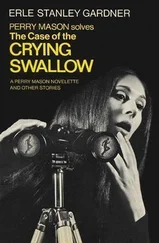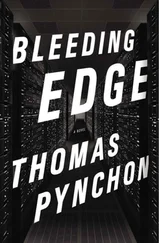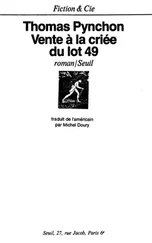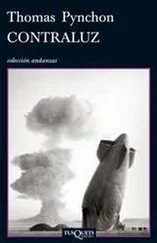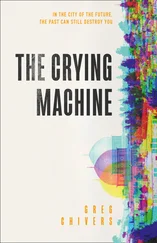Out at the airport Oedipa, feeling invisible, eavesdropped on a poker game whose steady loser entered each loss neat and conscientious in a little balance-book decorated inside with scrawled post horns. "I'm averaging a 99.375 percent return, fellas," she heard him say. The others, strangers, looked at him, some blank, some annoyed. "That's averaging it out, over 23 years," he went on, trying a smile. "Always just that little percent on the wrong side of breaking even. Twenty-three years. I'll never get ahead of it. Why don't I quit?" Nobody answering.
In one of the latrines was an advertisement by AC-DC, standing for Alameda County Death Cult, along with a box number and post horn. Once a month they were to choose some victim from among the innocent, the virtuous, the socially integrated and well-adjusted, using him sexually, then sacrificing him. Oedipa did not copy the number.
Catching a TWA flight to Miami was an uncoordinated boy who planned to slip at night into aquariums and open negotiations with the dolphins, who would succeed man. He was kissing his mother passionately goodbye, using his tongue. "I'll write, ma," he kept saying. "Write by WASTE," she said, "remember. The government will open it if you use the other. The dolphins will be mad." "I love you, ma," he said. "Love the dolphins," she advised him. "Write by WASTE."
So it went. Oedipa played the voyeur and listener. Among her other encounters were a facially-deformed welder, who cherished his ugliness; a child roaming the night who missed the death before birth as certain outcasts do the dear lulling blankness of the community; a Negro woman with an intricately-marbled scar along the baby-fat of one cheek who kept going through rituals of miscarriage each for a different reason, deliberately as others might the ritual of birth, dedicated not to continuity but to some kind of interregnum; an aging night-watchman, nibbling at a bar of Ivory Soap, who had trained his virtuoso stomach to accept also lotions, air-fresheners, fabrics, tobaccoes and waxes in a hopeless attempt to assimilate it all, all the promise, productivity, betrayal, ulcers, before it was too late; and even another voyeur, who hung outside one of the city's still-lighted windows, searching for who knew what specific image. Decorating each alienation, each species of withdrawal, as cufflink, decal, aimless doodling, there was somehow always the post horn. She grew so to expect it that perhaps she did not see it quite as often as she later was to remember seeing it. A couple-three times would really have been enough. Or too much.
She busrode and walked on into the lightening morning, giving herself up to a fatalism rare for her. Where was the Oedipa who'd driven so bravely up here from San Narciso? That optimistic baby had come on so like the private eye in any long-ago radio drama, believing all you needed was grit, resourcefulness, exemption from hidebound cops' rules, to solve any great mystery.
But the private eye sooner or later has to get beat up on. This night's profusion of post horns, this malignant, deliberate replication, was their way of beating up. They knew her pressure points, and the ganglia of her optimism, and one by one, pinch by precision pinch, they were immobilizing her.
Last night, she might have wondered what undergrounds apart from the couple she knew of communicated by WASTE system. By sunrise she could legitimately ask what undergrounds didn't. If miracles were, as Jesus Arrabal had postulated years ago on the beach at Mazatlan, intrusions into this world from another, a kiss of cosmic pool balls, then so must be each of the night's post horns. For here were God knew how many citizens, deliberately choosing not to communicate by U. S. Mail. It was not an act of treason, nor possibly even of defiance. But it was a calculated withdrawal, from the life of the Republic, from its machinery. Whatever else was being denied them out of hate, indifference to the power of their vote, loopholes, simple ignorance, this withdrawal was their own, un-publicized, private. Since they could not have withdrawn into a vacuum (could they?), there had to exist the separate, silent, unsuspected world.
Just before the morning rush hour, she got out of a jitney whose ancient driver ended each day in the red, downtown on Howard Street, began to walk toward the Embarcadero. She knew she looked terrible- knuckles black with eye-liner and mascara from where she'd rubbed, mouth tasting of old booze and coffee. Through an open doorway, on the stair leading up into the disinfectant-smelling twilight of a rooming house she saw an old man huddled, shaking with grief she couldn't hear. Both hands, smoke-white, covered his face. On the back of the left hand she made out the post horn, tattooed in old ink now beginning to blur and spread. Fascinated, she came into the shadows and ascended creaking steps, hesitating on each one. When she was three steps from him the hands flew apart and his wrecked face, and the terror of eyes gloried in burst veins, stopped her.
"Can I help?" She was shaking, tired. "My wife's in Fresno," he said. He wore an old double-breasted suit, frayed gray shirt, wide tie, no hat. "I left her. So long ago, I don't remember. Now this is for her." He gave Oedipa a letter that looked like he'd been carrying it around for years. "Drop it in the," and he held up the tattoo and stared into her eyes, "you know. I can't go out there. It's too far now, I had a bad night."
"I know," she said. "But I'm new in town. I don't know where it is."
"Under the freeway." He waved her on in the direction she'd been going. "Always one. You'll see it." The eyes closed. Cammed each night out of that safe furrow the bulk of this city's waking each sunrise again set virtuously to plowing, what rich soils had he turned, what concentric planets uncovered? What voices overheard, flinders of luminescent gods glimpsed among the wallpaper's stained foliage, candlestubs lit to rotate in the air over him, prefiguring the cigarette he or a friend must fall asleep someday smoking, thus to end among the flaming, secret salts held all those years by the insatiable stuffing of a mattress that could keep vestiges of every nightmare sweat, helpless overflowing bladder, viciously, tearfully consummated wet dream, like the memory bank to a computer of the lost? She was overcome all at once by a need to touch him, as if she could not believe in him, or would not remember him, without it. Exhausted, hardly knowing what she was doing, she came the last three steps and sat, took the man in her arms, actually held him, gazing out of her smudged eyes down the stairs, back into the morning. She felt wetness against her breast and saw that he was crying again. He hardly breathed but tears came as if being pumped. "I can't help," she whispered, rocking him, "I can't help." It was already too many miles to Fresno.
"Is that him?" a voice asked behind her, up the stairs. "The sailor?"
"He has a tattoo on his hand."
"Can you bring him up OK? That's him." She turned and saw an even older man, shorter, wearing a tall Homburg hat and smiling at them. "I'd help you but I got a little arthritis."
"Does he have to come up?" she said. "Up there?"
"Where else, lady?"
She didn't know. She let go of him for a moment, reluctant as if he were her own child, and he looked up at her. "Come on," she said. He reached out the tattooed hand and she took that, and that was how they went the rest of the way up that flight, and then the two more: hand in hand, very slowly for the man with arthritis.
"He disappeared last night," he told her. "Said he was going looking for his old lady. It's a thing he does, off and on." They entered a warren of rooms and corridors, lit by lo-watt bulbs, separated by beaverboard partitions. The old man followed them stiffly. At last he said, "Here."
Читать дальше


